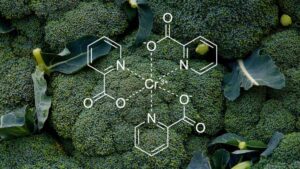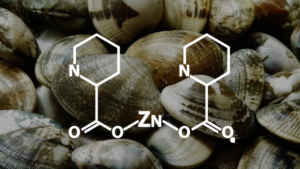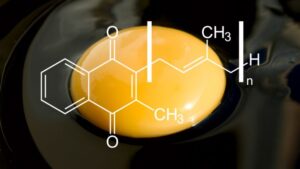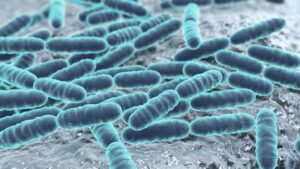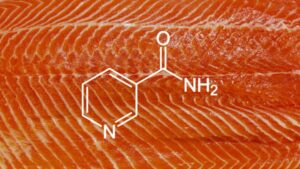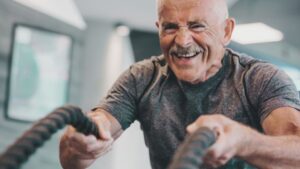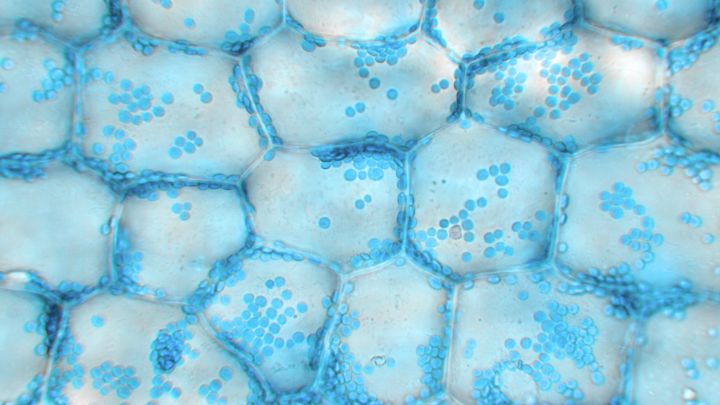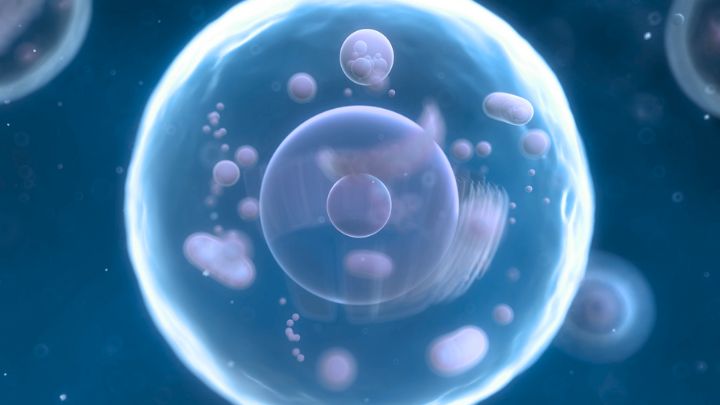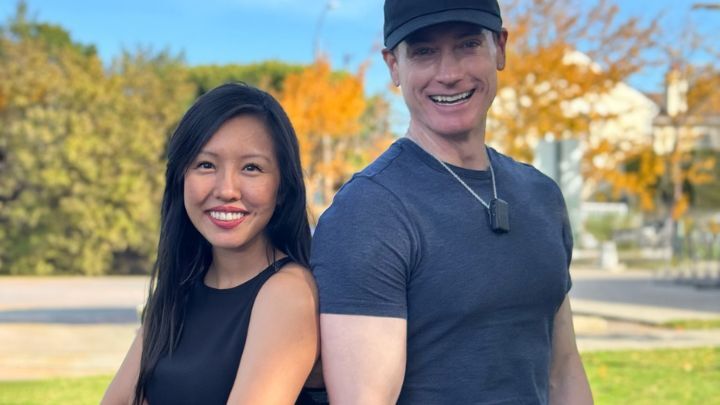Surprise surprise! Did you know that you actually have two ages? You probably know the one that equals the number of times you’ve circled around the sun, or you know, the number of candles you (wish to) blow every year. That’s your chronological age, the number of years you’ve been alive.
You also happen to have a biological age. Take note as this one might leave you wanting to step up your current lifestyle. More like your physiological age, your biological age refers to how old your body might ”seem”. See, we might not judge, but your cells certainly do.
In this article
Free guide to reverse your biological age

- Master the science of rejuvenation.
- Apply proven tips to turn back the clock.
- Transform your health with top longevity specialists.
Differences between biological age and chronological age
Your biological age[1], though primarily influenced by genetics, also takes several lifestyle factors into consideration, including your diet, how often you exercise, your sleeping patterns, how stressed you are, to name a few.

Whilst chronological age increases at the same rate for everyone, biological age does not.
Why is it important to consider your biological age?
The saying ‘’ageing is only a number’’ [2] should be revamped to ‘’your chronological age is only a number’’. Why?
From a scientific viewpoint, your biological age is much more than just a number. It provides insights into the progressive deterioration of your cellular environment, whereby the risks of mortality start skyrocketing significantly.

For instance, if you’re in your early 30s, do not exercise, constantly consume high-fat and processed foods, and have smoked several packs of cigarettes a day for the past 10 years, it’s more likely that your biological age is greater than your current chronological age. It sounds depressing, but it’s never too late to change your life for the better.
So, how can you figure out how old you really are?
Determining your biological age and best ways to test it
Scientists have outlined the principal biological hallmarks of ageing, which serves as a basis for the biomarkers for biological age. Nowadays, you can figure out your biological age by visiting clinicians or molecular biology labs offering such facilities, or by simply ordering at-home kits.
Research currently highlights telomere length and DNA methylation as age-and health-associated biomarkers.
Biological age and DNA methylation
Now that we know that chronological age only tells us part of the story, here’s a little crash course on how much power our genes actually have when it comes to ageing.
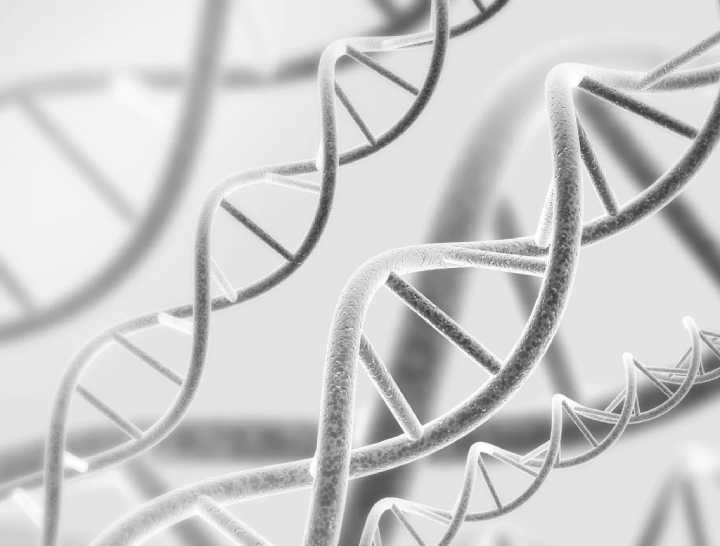
Your DNA, aka, your genome, holds instructions for producing proteins that carry out specific functions in your cell.
Your epigenome is the chemical compounds and proteins that attach to your DNA. Basically, they instruct your DNA what to do, when to turn on and off, and which proteins to make, etc [3].
Epigenetic changes do not modify your DNA, but they do change the gene activity, meaning, how different cells end up having different instructions. By tracking these epigenetic ‘’modifications’’, researchers have developed ‘’epigenetic clocks’’.
Learn more about epigenetics here.
Certain marks across part of the genome can now be identified and associated with signs of ageing. One of such markers is DNA methylation. Whilst being vital, abnormal methylation patterns raises the risk for diseases.

The extent to which your DNA is methylated is not only dependent on your age, but also a variety of environmental and biological factors.
Case in point, offspring of supercentenarians (>105 years) reveal DNA methylation patterns consistent with lower ‘’epigenetic age’’ than do the offspring of non–supercentenarians of the same age.
Similarly, scientists claim that exposure to sunlight, pollution, alcohol, and chemicals in food and water, plastics, and drug consumption, also play a major role in DNA methylation.
Biological age and telomere length
Telomeres are short structures at the end of your chromosomes that protect genetic information by preventing the chromosomes from sticking to each other.
Telomere length shortens naturally with chronological age, and a shorter telomere length has been associated with a higher risk of age-related diseases and poor survival.
Besides the hereditary aspect, various lifestyle choices adversely impact the rate of telomere shortening. These include a poor diet, smoking, drug and alcohol abuse, lack of exercise, stress and poor sleeping quality.
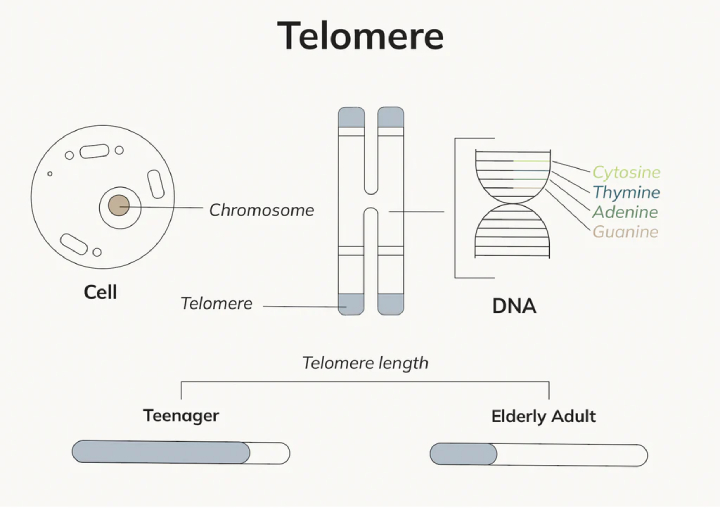
Biological age and inflammatory age (iAge)
Another method recently proposed by scientists from Stanford University and Buck Institute of Research on Ageing, is to measure our inflammatory age (iAge) through blood tests.
Your iAge could be a better indication of your age than the traditional method of using calendar years.
Inflammation is a process that happens in response to injury or infection. Its main purpose is to restore back normalcy. The problem arises when chronic inflammation occurs, where your body keeps sending inflammatory cells even in the absence of stress or outside danger.
This ultimately leads to the collateral damage to tissues and organs. It has been linked to heart disease, cancer, and neurodegenerative diseases.
As we age, the level of chronic inflammation in our body increases. Besides, this is exacerbated by smoking, obesity, poor diet, pollution, and stress. Being a gradual process, most of us remain unaware of it until we start developing symptoms.
By testing for and then working towards lowering your iAge, you can mitigate the risk of diseases commonly associated with chronic inflammation.
How to support healthy biological ageing
In order to make the best lifestyle choices to preserve your health, you first need to understand where you fall on the biological age spectrum and contemplate why.
Only then, will you be able to work towards having a younger biological age than your chronological age, for it’s certainly possible! But, let’s be realistic. Breaking old habits can be challenging.
Learn how to get rid of bad habits here.
So, start with baby steps. Keep in mind that creating a healthy lifestyle is not only about eating well and exercising, it’s also about being resilient and saying no to certain things, and constantly working on keeping a positive mental health.
Here are some tips to lower or even reverse your biological age:
Engage in physical activity
Exercising controls weight, combats several diseases, improves mood, boosts energy, promotes better sleep, and even enhance your sex life. Literally, everyone can benefit from exercising.
Managing your stress levels
Juggling between work, family, and other commitments can leave you overworked. It is important to set time aside to unwind and prevent your mental or physical health from deteriorating, thereby ageing you.
You can manage your stress by meditating, doing yoga and stretching, enjoying massages, taking hot baths and showers, enjoying some nature time, or simply listening to your favourite music. Relaxing is an important skill you should possess.
Nutritionally balanced diets
Eating balanced meals provide your body with the nutrients it needs to function properly. Remember, you are what you eat. As a rule of thumb, try to get most of your calories from fresh fruits and vegetables, whole grains, legumes, nuts and seeds, and lean proteins.
Effective sleep practices
Sleep plays a crucial role in good health and well-being throughout your life. The way you feel when you are awake depends largely on what happened in your brain during your sleep. Inadequate sleep increases your risk of chronic health problems causing accelerated ageing.
To have a better night sleep, stick to your bedtime routine, pay attention to your food consumption, reduce daytime naps, take relaxing baths or showers, or simply read a book or meditate before bed.
Turn back the clock with some additional steps
Besides physical activity, managing your stress, a healthier diet, and better sleep quality, you can take additional steps to support healthy biological ageing.
At Avea, our aim is to improve your healthspan, and potentially your lifespan. This is why we formulate science-backed longevity supplements to tackle the multiple aspects of ageing at cellular and molecular level. Top up your daily routine with our supplements, and feel the difference!
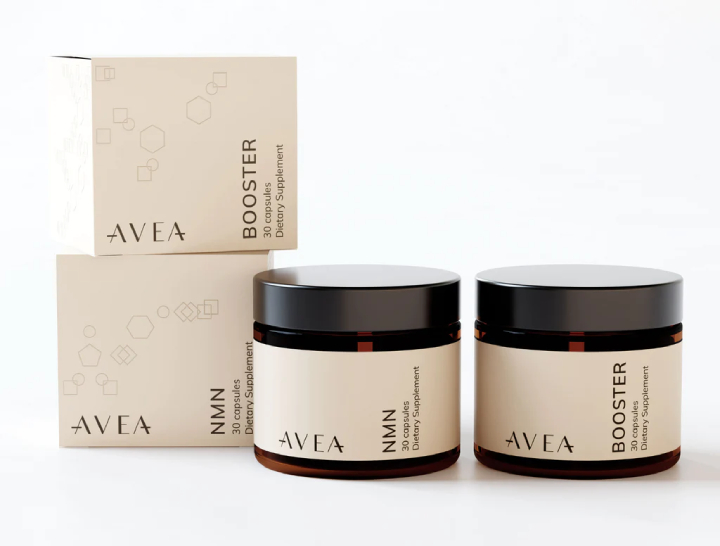
The Vitality Bundle comes as a duo:
- NAD+ precursor, crucial for energy production, sleep, focus, and more.
- Booster, packed with 5 powerful antioxidants: Resveratrol, Ubiquinol (CoQ10), Pterostilbene, Apigenin, and Betaine.
These natural ingredients unite to counter the signs of ageing at the cellular and molecular level. The Booster is specially formulated with olive oil for optimal bioavailability.
The oil provides a fatty source that promotes better absorption, and greater potency in your body, meaning it can be taken without food.
References
